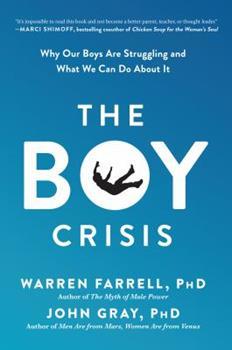
Excerpt from WArren Farrell's the Boy Crisis pgs 146-148

This is from a section of Warren's book about what Dad's do differently.
5. Challenging the Kids’ Limits
“Enough is enough,” Betty complained to Arnold, Marcy’s dad. “This is only Marcy’s fourth time skiing, and you’re bringing her to the intermediate slope with kids who’ve been skiing for years. And when she fell, you didn’t get the point, you just kept her out there. Suppose one of those faster skiers had run right into her? Didn’t you see how exhausted and scared she was?”
Arnold retorted, “And did she wake up early this morning, all excited to go back out there again?”
“Sure, yeah, but she’s a teenager,” Betty said. “You’re supposed to be the adult!”
Arlene told me about a similar problem with her husband, Martin, who would use a verbal equivalent to challenge the limits of their kids, Marty Jr. and Maggie. “Martin uses vocabulary that he knows Marty Jr. and Maggie don’t understand. He knows it, but when I point it out, he’s dismissive.”
“I’m not dismissive. I’ve explained to Arlene that this is the way they learn new vocabulary.”
“That’ll just frustrate and discourage them.”
“Well, I do it whenever you’re not around, and they come back for more.” Arlene and Martin both looked my way.
I shared with Arlene the research about the positive impact that using vocabulary beyond the child’s current grasp has on children’s ability to express themselves.[i] When I explained that no vocabulary is understood when first heard, and that part of building language is to keep introducing new words and ideas until the context builds the child’s vocabulary, Arlene was more at ease. Since she was the household Scrabble champion, she gave herself permission to try it on the kids herself.
Whether in sports or school, dads will often encourage their children to challenge their limits.[ii] When a dad sees his kids trying hard, he typically lets them win, but if they are not trying to their capacity, he may let them lose. The same dad whose ego might get involved when it comes to competing against peers is characteristically selfless when he engages in competition with his child. He feels no reward from winning with his child; his victory is teaching his child to both lose and win.
A dad’s tendency to turn everything into a game is the way dad makes it palatable to challenge his children’s limits. Often the competition is “last time you ran the hundred-yard dash in fifteen seconds—let’s see if you can beat that.” The laughter and the energy created by friendly competition may well lessen for dads the stress and sense of feeling overwhelmed that moms so often report.
While it is challenging for many moms to “get” roughhousing and the degree to which dads challenge kids’ limits, what even fewer moms get is how a dad’s propensity to challenge takes time to process and therefore requires more hangout time with dad.
6. Hangout Time
Boys have to hang out before they let their feelings out. This is not necessarily true with mom, but it is with dad.
When Rick’s dad picked him up from soccer and asked him how the game went, Rick answered, “Fine.” Rick’s dad couldn’t pry another word out of him.
That evening, Rick was doing his homework on the dining table while his dad was cleaning up in the kitchen. Rick wandered into the kitchen. Eyeing up the options in the fridge, he wondered aloud, “Hey, if you do a good job playing goalie one week, but then the coach asks someone else to play goalie the next week, what’s that about?”
That was the start of a half-hour conversation. The relief Rick felt with honest feedback about his disappointment over being replaced as goalie gave him enough security to ultimately broach a half dozen other disappointments that had been quietly poisoning his psyche and unwittingly leading him down a slippery slope toward depression. Had Rick’s dad just picked Rick up from soccer and delivered him to his mom, that conversation would never have taken place.
Wouldn’t the conversation have just taken place with his mom instead? Probably yes, and perhaps with even less hangout time. Why? Rick is likely to have anticipated reassurance from his mom, but a challenge from his dad. It takes less time to prepare oneself for reassurance than for a challenge. That is why hangout time with dad is so important—to balance mom-style input with dad-style input.
When two researchers examined the many possible reasons why children do so well psychologically when they either have about equal parent time or live primarily with dad, high on the list for boys was hangout time with dad.[iii] Hangout time with dad, though, was number one on the list for girls. Although girls express their feelings more easily, what they receive most often from girlfriends and mom is reassurance. Unlike boys, who are frequently challenged by their friends (as we’ll see below), girls are less likely to have anyone besides dad to go to with the anticipation of being challenged by someone who has her best interest at heart. [iv]
That challenging takes many forms. Perhaps the one that creates the deepest mom-dad divide is teasing.
[i] Nadya Pancsofar and Lynne Vernon-Feagans, “Mother and Father Language Input to Young Children: Contributions to Later Language Development,” Journal of Applied Developmental Psychology 27, no. 6 (2006): 571–87, doi:10.1016/j.appdev.2006.08.003.
[ii] Fletcher, University of Newcastle, Australia, and others, as cited in Shellenbarger, “Roughhousing Lessons from Dad.”
[iii] K. Alison Clarke-Stewart and Craig Hayward, “Advantages of Father Custody and Contact for the Psychological Well-Being of School-Age Children,” Journal of Applied Developmental Psychology 17, no. 2 (April–June 1996): 239–70, doi:10.1016/S0193-3973(96)90027-1.
[iv] For more on girls’ safety with bio dads—and usually, but not as certainly, with stepdads—see Warren Farrell, Father and Child Reunion.


















